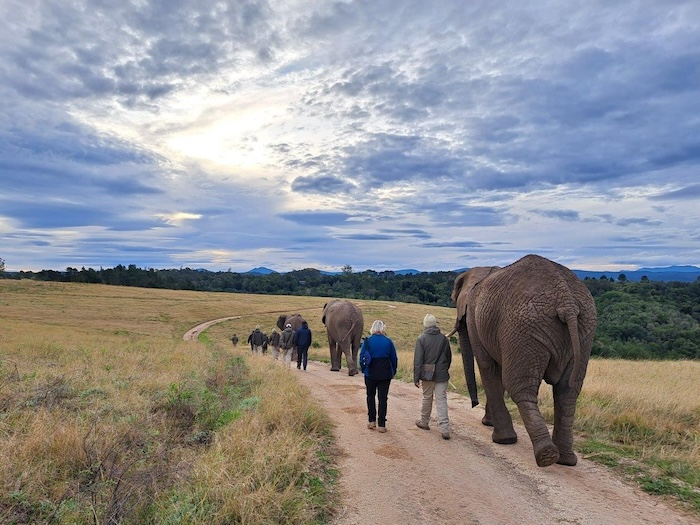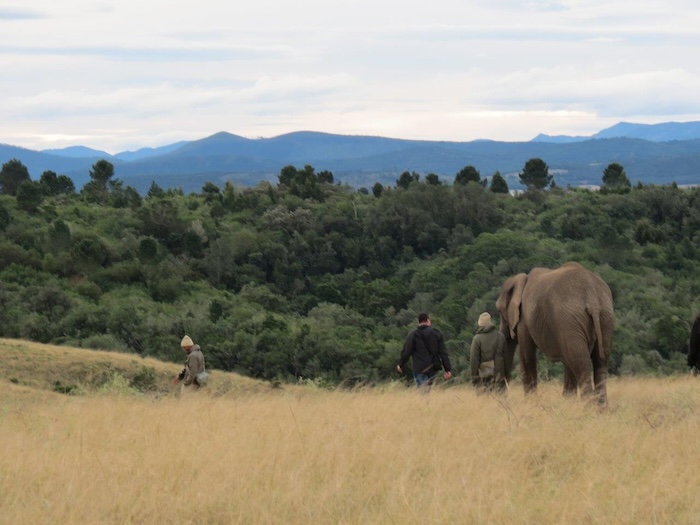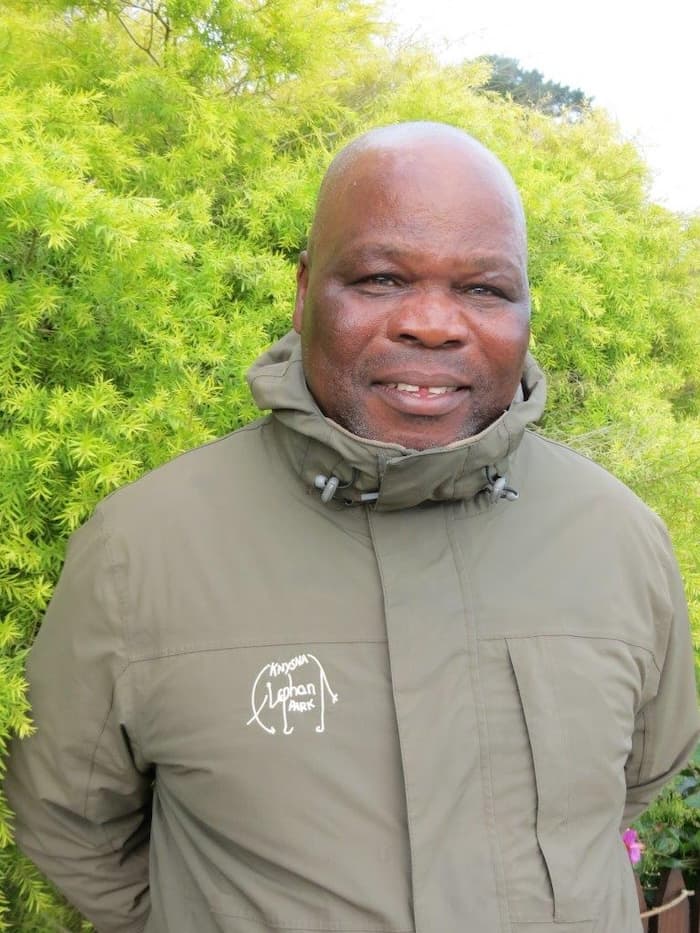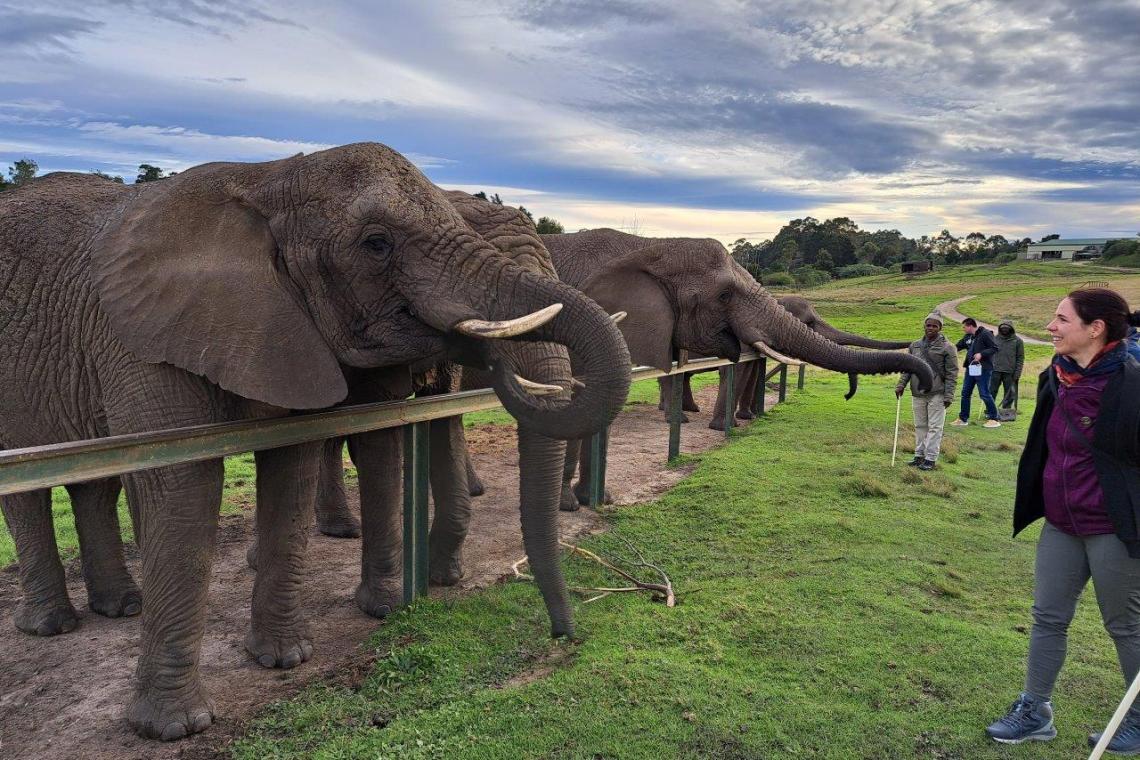Knysna Elephant Park turns 30. A significant milestone at the Knysna Elephant Park. We find out more about the all-important research by the pioneering African Elephant Research Unit.
Knysna’s Elephant Park is more than a tourist destination keeping the region’s links to these once plentiful animals alive. The KEP has a long record of caring for orphaned African elephants. It has also been a major contributor to research through the African Elephant Research Unit (AERU), a non-profit trust established here in 2009.

The elephant walk is one of the experiences offered at the park.
The park's story began in 1994 on the 200-ha farm owned by Ian and Lisette Withers when they heard two young calves rescued from a cull in the Kruger National Park needed a home. In setting up their facility, the Withers’ laid claim to the KEP becoming South Africa’s first-of-kind. More than 40 of the animals have since been cared for and raised here to either become part of the resident herd or be moved to other reserves and facilities around the country.
The current KEP herd numbers five and is said to be the largest domesticated matriarchal herd in the country.
The coming of the dedicated research arm in the form of the AERU was, however, a considerable milestone. “AERU’s role at KEP was established out of recognising a serious lack of research on elephants in a semi-captive environment with a focus on their welfare and husbandry,” says AERU chief Dr Maud Bonato.
“It was formed to facilitate the practice of research guiding management. It has evolved primarily through testing and improving our research methods, improving our infrastructure and expertise by sending team members on training programmes and building up a more proficient team.”

Elephants were once a very common sight in these parts.
She adds that the fruits of this endeavour have empowered AERU to contribute to the scientific world through publishing findings and contributing at symposiums.
Since 2021, AERU has presented at numerous conferences, including the International Elephant Foundation symposium, the International Congress of Zoology, and the International Society for Applied Ethology.
“We see this as critical as such interchange of information benefits all and drives advances towards the best practices for animal welfare globally,” says Dr Bonato. “Research is the pivotal base on which to make informed decisions, especially in semi-captive instances where more intensive management is practiced.”
Its next conference participation begins this September.
While AERU and KEP function largely independently, the former has undoubtedly impacted on the latter. In addition to caring for orphaned elephants, the KEP is a dynamo of local tourism with, amongst others, its guest accommodation, variety of elephant experiences, wedding packages, and restaurant and curio shop.
“Through monitoring elephant behaviour and tourist activity, AERU has helped the Park evolve throughout the years, using science as a platform to guide the park beyond former practices such as elephant riding and tourist elephant touching activity,” says Dr Bonato.
“Our ongoing research will continue to monitor these aspects to ensure the best practices are applied.”

Having joined in 1996, Geoffrey Phiri is the longest-serving employee at the Knysna Elephant Park.
The AERU comprises a research team and volunteers. Dr Bonato joined in June 2020, taking over from long-standing director and co-founder Dr Debbie Young.
The KEP is not the only source of its biological, veterinary and dietary data and other facilities are utilised too. Furthermore, the AERU has assisted research of postgraduate students at universities from amongst others the US, UK, Germany, Sweden, Netherlands, Spain and Austria. It describes its set of captive elephant data as being “unrivalled, as far as we know, by any other such database anywhere else in the world”.
This hasn’t come without challenges. “From AERU’s perspective, these come from training up research students and volunteers to proficiency, only to see them depart after that,” says Dr Bonato. “Although we enjoy teaching research practices, there are times when we sorely miss reaping all the benefits invested into training.
“We always hope to have our researchers and volunteers stay longer term.
“Furthermore, research can be a costly affair, acquiring the necessary resources to maintain our day-to-day operations, conduct new studies and maintain laboratory operations as well as keeping up with technology. We are thankful for our sponsors who support us through taking out sponsorships or making donations,” she says.
While the AERU’s focus is very much on the elephants, the 30th anniversary occasion will certainly present an opportunity to treat the herd to extra fruit enrichments in celebration, of the Park’s birthday; recognising the important role they play as ambassadors to the public for education and awareness, as well as a resident herd offering a social foundation for any potential newcomers.
“It is important to look at how far we have all come, recognising prior growth as a motivation for future growth.”
For more information about the AERU, as well as links to research, visit www.aeru.co.za. The website of the Knysna Elephant Park is www.knysnaelephantpark.co.za.
Sidebar
A long road with the elephants
The Knysna Elephant Park offers a range of experiences including a 45-minute walk with the elephant herd. It’s an occasion that still thrills elephant manager Geoffrey Phiri – the longest-serving employee at KEP. He started here in 1996, 27 years ago.
Back then, he had to learn from observation. Geoffrey says his education grew thanks to books about the animals that he started reading. When the opportunity came to be trained in elephant management school in the US no less, he jumped. “It was a huge stride of my knowledge,” he says.
Through his work, Geoffrey says his entire family has come to see at nature in a very respectful manner and understands “that we need to do a lot to protect nature and elephants in particular”.


